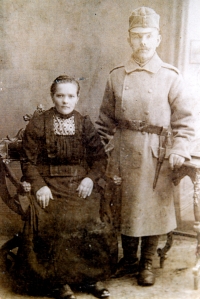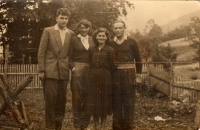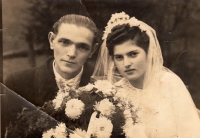We found a piano in the woods, left there by the Germans
Download image
Jan Bajza was born on 16 March 1948 in Domašov (since 1964 part of Bělá pod Pradědem) as the fourth of five children to his parents, Karel and Berta. His parents came to Domašov after the war from Jasenná in Wallachia. They took advantage of the call to settle the border area and by decree were given a house of the original German owners. After training as an electrician, Jan Bajza served in the garrison in the Slovak town of Martin. There he also experienced the invasion of the Warsaw Pact troops in August 1968, when the command took away the soldiers’ weapons and they were not allowed to leave their quarters for 14 days. During his time in the army, Jan Bajza met Eva Košiková, whom he married, and that is why he stayed in Martin. After the death of his wife, he moved with his two children back to his birthplace in Domašov in 1985. He worked as a forester until his retirement. He is a connoisseur of the local landscape and history. At the time of recording in 2024, he was still living in his family home in Domašov.


